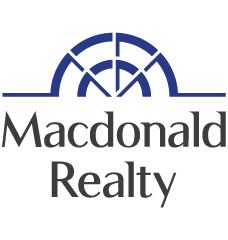
They’re typically smaller than single-family homes and they require far less upkeep. Yet the process of purchasing a condo may be much more detailed than that of purchasing a house.
Some of the advantages to purchasing a condominium, rather than a single-family home, include the obvious facts that condos are typically less expensive and may offer more amenities. The Strata Corporation is responsible for managing and maintaining the common property and assets of the strata development for the benefit of all of its owners. The specific obligations of the Strata Corporation are usually performed by the Strata Council, or by agents or employees which that it hires such as a Strata Property Management Company.
Let’s take a look at some of the other advantages:
- Maintenance chores are greatly reduced for condo owners. Although there may be landscaping in front of your unit, it is typically (though not always) up to the Strata Property Management Company to maintain it. The same holds true for the roof, fencing and other items.
- The typical Strata maintenance fee imposed on owners includes paying for items such as water, trash collection and sewer fees. Insurance is also paid for by the Strata Corporation, bringing down the cost of living in a condo even more, although you will still need to insure the contents of your condo.
- The appearance of the complex and issues such as noise and other types of disturbances are regulated by the Strata Council.
- Condominiums may offer more security than a single-family home. Many have doormen, guards or gates at the entry. The proximity of neighbors also adds a certain level of security that may not be present in an area’s single-family home selection.
Yes, there are disadvantages to owning and living in a condo:
- The proximity of neighbors, while also listed as an advantage, may be a disadvantage for those who crave privacy.
- The HOA, while advantageous for many reasons, may be intrusive and dictate unreasonable restrictions.
- Condos tend to have less storage space than single-family homes, a concern especially for families with lots of “stuff.”
- When you purchase a house, unless it sits on leasehold property, you are also buying the land beneath it. Not so with a condo. In most instances you will own only the space inside the unit and share ownership the common areas of the complex.
- Your share of the common areas, however, does not grant you the right to alter them in any way. So, although you may despise the tree in front of your unit, you are not allowed to remove it unless the Strata Corporation/Strata Councial approves.
The Condo Purchase Process
If you’ve purchased a house before you’ll notice that the condo purchase requires far more paperwork. This is because the seller must provide the buyer with certain Strata Corporation documents, which vary by province. These documents may include:
- Strata Plan
- Meeting Minutes
- Bylaws
- Financials, Contingency Reserve Funds, Budget
- Engineering Report/Depreciation Report
Each Strata Corporation document provides valuable information. For instance, the meeting minutes let you know the type of issues that the board deals with frequently and whether there has been discussions regarding raising fees or if they are considering special assessments.
By far, the most important documents are the Strata’s financials, especially the reserve balance, sometimes called “reserve funds,” or “reserves.”
This is money set aside to cover major repairs, replacement or maintenance of common area elements, such as a broken sewer line. A well-funded reserve account ensures you that there will most likely not be future special assessments imposed on the owners.
Another red flag to look for in the Strata documents is the number of non-owner occupied units. There are several reasons that a large number of tenants make the condo less attractive. First, many lenders won’t finance a condo in a complex with a tenant ratio over 25 percent.
Next, tenants don’t have the same incentive as owners to keep the property maintained so an overabundance of them may tend to bring down the value of the complex.
If you have any questions about anything in the Strata documents, consult an attorney before signing an agreement to purchase the condo.
Since these documents govern how you can use your unit and the future costs of owning it, you owe it to yourself to understand every word.
The We Love Kits Team is very knowledgeable around Strata Titled Properties, and have extensive experience helping clients sell and buy condo properties safely in British Columbia for over 10 years.
About the Author:

The above article Information you need if you’ve got your eye on a Vancouver Condo was provided by Regan Pyke, a Vancouver Realtor and a leader in the field of sales, marketing, and real estate investing. Regan can be reached via email at [email protected] or by phone at 778-228-2448.
Thinking of buying or selling your home? I have a real passion for buying and selling Real Estate, as well as marketing & real estate investing. I’d love to share my expertise!


 EN
EN
 FR
FR